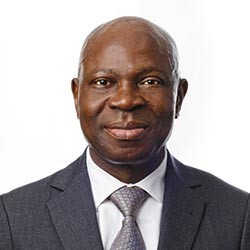Opening Remarks by Gilbert Houngbo, President of IFAD, at the World Economic Forum, ASEAN Post Panel
IFAD Asset Request Portlet
ناشر الأصول
Opening Remarks by Gilbert Houngbo, President of IFAD, at the World Economic Forum, ASEAN Post Panel
The new reality inflicted by COVID-19: The view from IFAD’s perspective
موقع: Virtual event
29 يناير 2021Ladies and Gentlemen,
The pandemic has been hard on many of the communities where IFAD works.
As a specialized UN agency and international financial institution, IFAD has been on the front lines of the fight against rural poverty and hunger for more than 40 years. Its mandate is very specific – to invest in the poorest of rural communities to create opportunity, food security, and resilience.
Right from the start, we heard from farmers who could not get seeds or fertilizer for the planting season because borders were closed or travel restricted; from others who could not harvest their vegetables because there were no farm laborers, or who could not sell because markets were closed.
To help farmers cope and not have to sell their assets, we quickly repurposed funding. To date, we have repurposed about US$171 million, and a further US$65 million is in the pipeline. This has primarly been used to distribute seeds and fertilizer, and support access to markets and financial services
We also recognized a need for an immediate short-term response to stimulate markets and ensure farmers had access to finance and financial services. With this in mind, we created the Rural Poor Stimulus Facility specifically for vulnerable rural people in low-income countries and fragile situations. This direct response to the COVID emergency has so far approved US$36.6 million in financing for 53 projects across 68 countries. These are expected to reach 1.6 million rural women and men.
We are also integrating a COVID response into our country strategies and are rolling out digital solutions, such as e-vouchers that allow cash transfers to farmers so they can buy inputs.
Ladies and gentlemen,
We know from experience – such as with Ebola, locusts and drought – that when crisis strikes, it is the poor who are hit hardest. And we know that women and children suffer disproportionately.
Today’s pandemic increases the urgency of making our food systems not only more sustainable, but also more resilient, as well as inclusive and fair.
We cannot prevent shocks, but we can mitigate their effects by investing in building resilience and in rural economies and rural people.
COVID-19 underscores just how important this is.
Thank you.
Not checked against delivery
